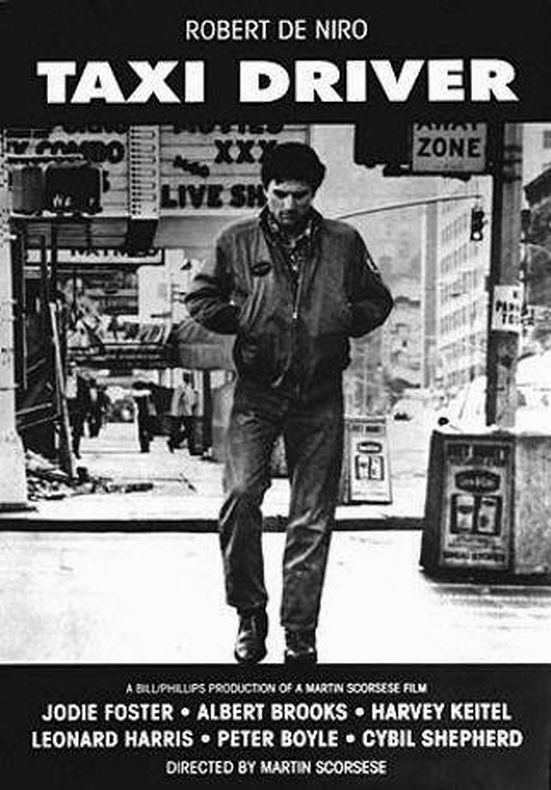

‘Modes of Urban Alienation’
Welcome to the ‘Modes of Urban Alienation series’ which will feature four films: Annie Hall (1977), Midnight Cowboy (1969) and Taxi Driver (1976) and Mean Streets (1973). Modes of urban Alienation refer to the various ways that individuals become isolated within urban areas which in this case is represented by New York City which is now one of the top three cities in the world along with London in the United Kingdom and Tokyo in Japan. In a city the concept of urban alienation is significant for it is the only concept that explains how individuals interact despite the overwhelming population numbers that normally prevail in such an environment. Urban alienation refers to individualist tendencies associated with the growth of capital. In the city it is every man for himself despite the high population numbers. The communal element is lost with the dissolution of religion and the agrarian base and the subjection of every feature of life to money. Money becomes the source of everyman’s aspiration. If you choose some other form of aspiration you will perish. Cities are highly industrialized areas or centres of commerce and this allows it to absorb such large population numbers by compartmentalizing the land space. The allotment to each individual is restricted to a few metres or is relatively small when compared with the open space of the country side. There is a scramble for space especially as the high levels of productivity in industry, which are represented by the cities, force individuals from the country side to seek some form of enrichment in these great areas of commerce. They also force immigrants from the poorer nations of the world to seek solace in the great metropolitan centres. The influx of migrants from the country, or the poorer nations of the world who also have a large agrarian base, results in a culture shock for some since these individuals cannot cope with the ceaseless struggle to attain money and the competition that goes along with it. Those who cannot cope either become destitute or go insane. Urban alienation thus goes along with this concept that money is your lord and savior. The same thing occurred when religion was the centre of the universe; individuals would aspire to become attached to the institutions that were said to be the only way to god. Elaborate structures were built in the name of god although it only added to the prestige of the church, the masjid/mosque and the Buddhist and Hindu temples that grew fat on subventions of the state and its members despite failing to actually deliver salvation or fulfill any of its warped prophecies. When industrial capital takes over these religious orders crumble and money becomes the savior of man. Concepts of god become irrelevant and religion becomes yet another means to make money; salvation now has a literal cost. People become increasingly removed from each other despite the efforts of the idealists who clamour for unity. The irony of the situation is that an individual in the city is confronted with seemingly endless opportunities which involve interactions with a host of people and many activities to participate in to make money or enjoy oneself. It is an irony because everyone has his or her own agenda regardless of their efforts to become a part in the lives of others. If their agenda does not comply with the others who they seek to embrace one or the other will be relegated or forsaken or disposed of. It will inevitably reach the stage when man and woman will be so far removed from each other they only come together to have sex or when money is involved. The man or woman (a woman might not need a man to insert his penis for she can simply go to the sperm bank seeking a donor. The man seems to need the woman more than she does him) will perhaps need a child or children. This urge to come together through sex is the only means that people come together apart from social activities such as work (for the capitalist class or the government), clubbing, going to the cinema or the theatre or other such amusements and going shopping to enrich the bourgeois class. After these activities one must return to his or her own little space. Urban alienation is therefore associated with these individual tendencies which involve the scramble for money. The concept of the family will alter drastically by the 22nd century although it still remains necessary when rites of succession come into play; the issue of debt, however, might make a person regret that he or she was tied to a particular family.
Cities like most forms of social organization are constructed on the basis of class divisions. There are affluent sections of the cities and there are the average settings and then there are the poor underdeveloped areas where humans and rats fight for space. These divisions only serve to reinforce the concept for should you be able to survive the scramble for money you will more than likely be able to ascend the social ladder since money is what people respect most in the cities. Your background does not play such an important role if you are able to ascend by earning money. The corrupt bourgeois class and their lackeys, that exploit the proletariat or working classes, remain safe in their havens (Wall Street) due to cooperation since they realize that the possibility of revolt from the proletariat is ever present. Members of this class can fall simply when extravagant amounts of debt are accumulated. This class is merely transitory (I am here agreeing with Marx based on present observations). Only the police and the soldiers can save them since they provide security for their property. The poorer elements or those caught in the scramble for a place in the sun are exposed to the cruelty associated with Urban alienation and while some are able to rise by doing something extraordinary others fall and never recover. In the rat race individuals become indifferent to the plight of others unless you are not concerned with advancing in this particular society or are tied to a fraternity.
These films that I will assess more or less capture this essence of urban alienation from various perspectives. Annie Hall captures the almost futile nature of so called romantic relationships since inevitably both man and woman will separate. The romantic concept will become increasingly irrelevant although this does not rule out the possibility that two people cannot feel deeply for each other. The only way this deep feeling can be solidified is through marriage and this too becomes increasingly irrelevant when industry increasingly forces people to compete for their own little space. In Annie Hall comedian Alvy Singer (Woody Allen) is caught up in this system of urban alienation and cannot be tied to this concept of romantic behavior although he is almost saved by Annie Hall (Diane Keaton). The relationship they have suggests that there is still hope for humans to come together although Alvy refuses to stop clinging to these values of New York and cannot hope to follow Annie to California where she hopes to pursue her dreams. This is what undermines their relationship. I will discuss themes related to the mode of alienation particularly the techniques used by director Woody Allen to create a sense of dichotomy that renders Alvy’s attempts to stay whole futile. This reinforces the concept of urban alienation that is a unique condition of city life. Midnight Cowboy reinforces this concept from an economic perspective where a country boy, Joe Buck (Jon Voight) who hopes to make his fortune in New York, by being a gigolo for old women, is forced to confront the harsh realities of city life and his only solace is in a con named Ratso (Dustin Hoffman) with whom he shares a room within a soon to be demolished building. The need to break free of the shackles of city life proves to be ultimately futile especially as Ratso’s illness is life threatening. It is told from a basic economic perspective and the unlikely union of these two males who try to combat the hardships of city life. It still hints that despite urban alienation people are still forced to come together to try and survive. This hints at the impending proletariat revolution that will come once capital has exhausted its capabilities. Taxi Driver, along with Mean Streets, also reinforces the concept of urban alienation from the perspective of trying to break free from the cutthroat nature of city life. In Mean Streets the compassion exhibited by Charlie (Harvey Keitel) is incompatible with the selfish traits of city life. He tries to break out but is thwarted in his quest to escape with the two undesirables, his best friend the hot head Johnny Boy (Robert De Niro) and his epileptic girlfriend Teresa (Amy Robinson). The overriding theme here is that compassion which is here reflected through Charlie’s catholic faith is becoming increasingly irrelevant as vice now reigns supreme in the city. In Taxi Driver Travis Bickle is an alienated individual in New York who cannot cope with this way of life and so tries to gain attention. This need to stand out is a complex of city life where people resort to eccentric behaviors to gain recognition by the populace. This eccentric behavior can land you in jail or it can see you exalted by the populace. In the countryside, for instance, those behaviours would characterize you as crazy since everyone knows everyone. In the city you are alienated and are nothing more than a speck in this great sea of humanity. There are some like Travis who resort to drastic measures to gain attention. He tries to attack a presidential candidate, rescue a twelve year old prostitute, Iris (Jodie Foster), from gangbangers and tries to gain the attention of the beautiful Betsy (Cybill Shepherd).
I will review the films in the following order: Annie Hall, Midnight Cowboy, Mean Streets and Taxi Driver. All of the films are set in New York City and could be simply be called ‘Visions of New York’. I have opted for the ‘Modes of Urban Alienation’ concept.


No comments:
Post a Comment